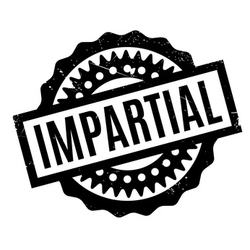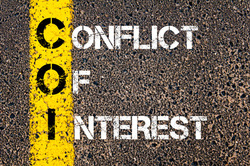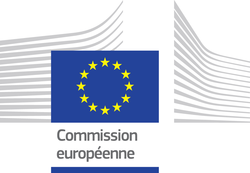Food for thoughts
Compliance and Regulation Law bilingual Dictionnary

The Federal Communications Commission (FCC) is the independent regulatory authority in the United States that regulates at the federal level both the container and the content of telecommunications.
In this, the United States differs from the European Union, a legal space in which most often the regulatory institutions of the container and the content are distinct (for example in France ARCEP / CSA / CNIL) and in which the regulations of communications remain substantially at the level of the Member States of the Union.
Like other audiovisual regulators, it ensures pluralism of information by limiting the concentration of capital - and therefore of power - in the television and radio sector. We can thus see that the American system is not in principle different from the European system.
In addition, the FCC is characterized first of all by a very great power, imposing at the same time substantial principles on the operators, like that of the "decency", going in the name of this principle until sanctioning television channels which had let show a bare breast of a woman. The control is therefore more substantial than in Europe, this control weighing against the constitutional freedom of expression which is more powerful in the United States than in Europe. It is true that today the leading digital companies tend to formulate for us what is beautiful, good and decent, in place of public authorities.
The FCC continued to develop the major principles of the public communication system, as in 2015 that of the Open Internet (Open Internet) or to formulate the principle of "digital neutrality", adopted by a federal law, this principle having considerable economic and political implications.
But at the same time, a general mark of American law, the judge moderates this power, according to the principle of Check and Balance. Thus the Supreme Court of the United States in FCC v. Pacifica Foundation in 1978 this power of direct control of the content but also operates the control of the control.
The election in 2016 of a new president who is, among other things, totally hostile to the very idea of Regulation is a test in the probative sense of the term. In January 2017, he appointed a new president of the FCC, hostile to any regulation and in particular to the principle of neutrality. The question which arises is to know if technically a regulation already established on these principles can resist, how and for how long, a political will violently and expressly contrary. And what will the judges do.
Compliance and Regulation Law bilingual Dictionnary

The State's traditional view is that it serves the general interest through its public services, either directly (by its administrations, or even by public enterprises), or by delegation (eg through the concession mechanism). Public service is generally defined in a functional way, ie through public service missions that the organization must perform, such as providing public transport or caring for the population whatever (Eg in France by the public firm the SNCF). The liberalization of those public sectors, the primary reference to the market as a means of achieving the general interest, the primary reference to competition and the play of the European Law has destroyed this intimacy between public service, general interest, public enterprise and State.
Today, in a dialectical game, the Regulation keeps this concern for public service missions in balance with the competition, in a competitive context and under the control of a Regulator. The system is more complex and challenging because it creates new difficulties, such as information asymmetry or less easy integration of long-term planning, but it is better suited to an open and globalized economy.
Compliance and Regulation Law bilingual Dictionnary

The insurance sector has always been regulated in that it presents a very high systemic risk, since the economic operators' strength is required for the operation of the sector and the bankruptcy of one of them may weaken or even collapse all. In addition, insurance is the sector in which moral hazard is the highest, since the insured will tend to minimize the risks to which he is exposed in order to pay the lowest premium possible, even though ehe company is engaged to cover an accident whose size can not be measured in advance. Thus, the science of insurance is above all that of probabilities.
The recent challenge of regulating insurance, both institutional, the construction and the powers of the regulator of the sector, and also functional, namely the relations that it must have with the other bodies and institutions, lies mainly in the relationship between the insurance regulator and the bank regulator, which refers to the concept of "interregulation." If the formal criteria are followed, the two sectors are distinct and the regulators must be similarly separated. There was the case in France before 2010. En 2010, considering activities, sensitive to the fact that insurance products, for example life insurance contracts, are mostly financial products, and moreover, through the notion of "bank-insurance", the same companies engage in both economic activities, the solution of an unique body has been chosen.
A part from the fact that in Competition Law companies are defined by market activity, the main consideration is that the risk of contamination and spread is common between insurance sector and banking sector. For this reason, the French Ordinance of 21 January 2010 created the Autorité de Contrôle Prudentiel -ACP (French Prudential Supervisory Authority), which covers both insurance companies and banks, since their soundness must be subject to similar requirements and to an organization common. The law of July 2013 entrusted this Authority with the task of organizing the restructuring of these enterprises, thus becoming the Autorité de Contrôle Prudentiel et de Résolution - ACPR (French Prudential Control and Resolution Authority).
However, the substantive rules are not unified, on the one hand because the insurers are not in favor of such assimilation with banks, secondly because the texts, essentially the European Directive on the insolvency of insurance companies ("Solvency II") , eemain specific to them, and at a distance from the Basel rules applying to banks, which contradict the institutional rapprochement exposed before. European construction reflects the specificity of the insurance sector, the Regulation of 23 November 2010 establishing EIOPA, which is a European quasi-regulator for pension funds, including insurance companies.
The current issue of insurance regulatory system is precisely the European construction. While the Banking Union, the Europe of banking regulation, is being built, the Europe of Insurance Regulation is not being built. Already because, rightly, it does not want to merge into the banking Europe, negotiations of the texts of "Solvency II" stumbling on this question of principle. We find this first truth: in practice, it is the definitions that count. Here: Can an insurance company define itself as a bank like any other?
L'enjeu actuel de la Régulation assurantielle est précisément la construction européenne. Tandis que par l’Union bancaire, l’Europe de la régulation bancaire se construit, l’Europe de la Régulation assurantielle ne se construit. Déjà parce que, à juste titre, elle ne veut pas se fondre dans l’Europe bancaire, les négociations des textes de « Solvabilité II » achoppant sur cette question de principe. L’on retrouve cette vérité première : en pratique, ce sont les définitions qui compte. Ici : une compagnie d’assurance peut-elle se définir comme une banque comme une autre ?
Thesaurus : Doctrine
►Full Reference: Delalieu, G., La loi sur le devoir de vigilance des sociétés multinationales : parcours d’une loi improbable, Droit et Société, 2020/3, n°106, p.649-665.
____
►English Summary of the Article (done by the Author): (Corporate Duty of Vigilance in France: The Path of an Improbable Statute). This article offers an analysis of the resistance encountered by defenders (NGOs and trade unions) of the French Law on Corporate Duty of Vigilance. These actors sought to behave as institutional entrepreneurs deploying intense advocacy and lobbying efforts to successfully have this bill tabled, examined, and ultimately passed by the French government. Considering this case, the concept of “institutional entrepreneurship” is discussed and then relativized using Machiavelli’s notion of “Fortuna,” to describe the “improbable” adoption of this statute. The results tend to put into perspective the importance that individual actors, including collective ones, can have in the explanation of institutional change, in favor of a multilevel analysis of change (micro, meso, macro).
________
Thesaurus : Doctrine
► Référence complète : Branellec, G. et Cadet, I., "Le devoir de vigilance des entreprises françaises : la création d’un système juridique en boucle qui dépasse l’opposition hard law et soft law", Open Edition, 2017.
____
Thesaurus : Soft Law
Référence complète : Response to the Study on Directors’ Duties and Sustainable Corporate Governance by Nordic Company Law Scholars, octobre 2020.
Thesaurus : Doctrine
Référence : Beauvais, P., Méthode transactionnelle et justice pénale, in Gaudemet, A. (dir.), La compliance : un nouveau monde? Aspects d'une mutation du droit, coll. "Colloques", éd. Panthéon-Assas, Panthéon-Assas, 2016, pp. 79-90.
Voir la présentation générale de l'ouvrage dans lequel l'article a été publié.
Thesaurus : Doctrine

Référence complète : Salah, M., La mondialisation vue de l'Islam, in Archives de Philosophie du Droit, La mondialisation entre illusion et utopie, tome 47, Dalloz, 2003, 27-54.
La mondialisation apparaît comme une occidentalisation des cultures et du droit. L'Islam qui prend forme juridique devrait se l'approprier sans se dénaturer. La réussite d'un tel processus difficile dépendra de la qualité de la régulation qui sera mise en place.
Lire une présentation générale de l'ouvrage dans lequel l'article a été publié.
Les étudiants de Sciences po peuvent via le drive lire l'article dans le dossier "MAFR - Régulation".
Compliance and Regulation Law bilingual Dictionnary

It can not be defined as the absolute positive aptitude, namely the total absence of prejudice, the heroic aptitude for a person to totally ignore his or her personal opinions and personal history. This heroic virtue is nonsense because not only is it inaccurate, impossible but it is also not desirable because a person is not a machine. It must not be so because good justice is human justice. In this respect, impartiality refers to a philosophical conception of what is justice and what is Regulation, not machines, but systems that must keep the human person in their center (Sunstein).
Thus Impartiality is articulated with the subjective nature of the assessment not only inevitable but also desirable that the judge makes of situations. Because Law is reasonable, Impartiality is defined only negatively: the absence of bias.
Impartiality is defined first and foremost as a subjective and individual quality, namely, the prohibition on the person who makes a decision affecting the situation of others (as is the case of a judge) to a a personal interest in this situation. The constitutional prohibition of being "judge and party" is thus the expression of the principle of impartiality. This definition is in line with the otherwise general requirement of no conflict of interests.
Impartiality is defined secondly as an objective and individual quality, namely the prohibition for a person who has already known of the case to know again (because he or she has already had an opinion about it, this having constituted an objective pre-judgment).
Impartiality is defined thirdly as an objective and structural quality, which obliges the organ which takes judgments to "give to see" a structure that makes it fit for this impartiality, objective impartiality that third parties can see and which generates confidence in its ability to judge without bias. This theory of English origin has been taken up by European law in the interpretation given to the European Convention on Human Rights. The expression "apparent impartiality" has sometimes given rise to misunderstandings. Indeed, far from being less demanding (in that it is "only" to be satisfied with an appearance of impartiality and not of a true impartiality), it is rather a matter of demanding more, not only of a true impartiality, but also of an impartiality which can be seen by all. This leads in particular to the obligation of transparency, to which the institutions, notably the State, were not necessarily bound by the law.
For a long time the Regulator, in that it took the form of an Administrative Authority, was not considered a jurisdiction, it was long considered that it was not directly subject to this requirement. It is clear from the case law that the national courts now consider that the regulatory authorities are courts "in the European sense", which implies a fundamental procedural guarantee for the operators concerned
Thesaurus
Référence complète : Grandjean, J.P., rapporteur, Rapport sur l'avocat chargé d'une enquête interne, Conseil de l'Ordre des Avocats, Paris, 8 mars 2016.
Compliance and Regulation Law bilingual Dictionnary

Competition is the law of the market. It allows the emergence of the exact price, which is often referred to as "fair price". It means and requires that agents on the market are both mobile, that is to say free to exercise their will, and atomized, that is to say, not grouped together. This is true for those who offer a good or service, the offerers, as well as for those seeking to acquire them, the applicants: the bidders seek to attract the applicants so that they buy them the goods and services that they propose. Bidders are in competition with each other.
In the competitive market, buyers are indulging in their natural infidelity: even if they have previously bought a product from an A supplier, they will be able to turn away from him in favor of a B supplier if the latter offers them a product more attractive in terms of quality or price. Price is the main signal and information provided by the suppliers on the market to excite this competitive mobility of the offerers. Thus, free competition accelerates market liquidity, the circulation of goods and services, raises the quality of products and services and lowers prices. It is therefore a moral and virtuous system, as Adam Smith wanted, a system which is the fruits of individual vices. That is why everything that will inject "viscosity" into the system will be countered by Competition Law as "non-virtuous": not only frontal coordination on prices but for example, exclusivity clauses, agreements by which companies delay their entry on the market or intellectual property rights which confer on the patentee a monopoly.
Admittedly, Competition Law can not be reduced to a presentation of such simplicity, since it admits economic organizations which deviate from this basic model, for example distribution networks or patent mechanisms on which, inter alia, is built the pharmaceutical sector. But the impact is probative: in the sphere of Competition Law, if one is in a pattern that is not part of the fundamental figure of the free confrontation of supply and demand, he has to demonstrate the legitimacy and efficiency of its organization, which is a heavy burden on the firm or the State concerned.
Thus, in the field of Regulation, if regulatory mechanis were to be regarded as an exception to competition, an exception admitted by the competition authorities, but which should be constantly demonstrated before them by its legitimacy and effectiveness in the light of the "competitive order", then public organizations and operators in regulated sectors would always face a heavy burden of proof. This is what the competition authorities consider.
But if we consider that regulated sectors have a completely different logic from competitive logic, both from an economic and a legal point of view, the Law of Regulation refers in particular to the notion of public service and having its own institutions, which are the regulatory authorities, then certain behaviors, in particular monopolies, are not illegitimate in themselves and do not have to justify themselves in relation to the competitive model, for they are not the exception ( Such as the public education or health service).
Compliance and Regulation Law bilingual Dictionnary

Control is a concept so central in Regulation that, in the difficult exercise of translation, the English term of "Regulation" or the expression "Regulatory system" are often translated, for example in French,, by the French word "control" (contrôle). Indeed, the Regulator controls the sector for which he is responsible. This control is carried out ex ante by the adoption of standards of behavior, whether the Regulator prohibits behavior or obliges the operators to do so. In addition, the Regulators exercises his control powers through the power to approve companies entering the sector or the power to certify certain types of products sold on the markets for which he is responsible. In addition, he continuously monitors the sectors for which he is responsible since his function is either to construct them to bring them to maturity or to remain in balance between the principle of competition and another concern, for example to ensure that they do not fall into a systemic crisis.
These ex ante controls radically distinguish the regulatory authority from the competition authority, which intervenes only ex post. Finally, the regulatory authority controls the sector in ex post: in this he works on a temporal continuum, sanctioning the failings he finds on the part of the operators to the prescriptions he has adopted himself. he often has the power to settle disputes if two operators compete in a dispute between them and bring it before him.
This control function specific of the regulatory authority, which it often shares with the traditional administration and which opposes it to the activity of the competition authority and the courts, is made difficult by its possible lack of independence. Indeed, because the Regulator is a State boddy, if the regulator has to control a public operator, it may risk being captured by the government, since the whole organization of the regulatory system must therefore ensure its independence not only statutory but also budgetary in relation to it. This risk of capture is permanent not only because of the government but also because of the sector. Secondly, control can be inefficient if the regulator lacks adequate, reliable and timely information, risk generated by information asymmetry.
To fight against this, according to the childish image of the stick and the carrot, we must at the same time give the regulator powers to extirpate information that the operators do not want to provide, the texts never ceasing to give regulators new powers, such as perquisitions power ou sanction ou settlemeent. Symmetrically, operators are encouraged to provide information to the market and the regulator, for example through leniency programs or the multiplication of information to be inserted in company documents. Finally, there is a difficult balance between the need to combat the capture of the regulator and the need to reduce the asymmetry of information since the best way for the latter to obtain information from the sector is by frequent attendance by operators: , This exchange that they accept very willingly is the open voice to the capture. It is therefore an art for the regulator to keep operators at a distance while obtaining from them information that only untended relationships allow him to obtain.
Moreover, the Compliance Law which is in the process of being put in place is intended to resolve this major difficulty, since the operator becomes the primary agent for the implementation of the Regulation Law, whose aims are internalized in the " crucial " and global operators perator, operator crucial and global, the Regulator ensuring the effective structural change of the operator to realize these goals of this Global Regulation Law.
Compliance and Regulation Law bilingual Dictionnary

Watch the video explaining the "right to be forgotten".
The "right to be forgotten" is a recent and specifically European invention. It was designed by the Court of Justice of the European Union in the Google Spain judgment of May 13, 2014, so that in this world without time, in which all information is eternally stored and available that is the digital world, the individual thus exposed can be protected against this new phenomenon, since forgetting no longer exists, by Law which by its power endows it with a "right to be forgotten". In this the term Right to be forgotten is more accurate.
Because Law is made to protect human beings, the technological efficiency which created the digital world is limited by the new legal prerogative of the person to make unattainable information which concerns him when it takes on a "personal character". This was taken up by the community regulation of April 27, 2016, often called GDPR, transposed in the member states of the European Union no later than May 25, 2018.
More than in the laws which have taken up the idea of protection of persons in the handling of "data" by others, expressing more the concern to protect the consumer in a market economy, it is a question of directly protecting persons. in a technological world allowing blind obedience, Europe rejecting this model because the technique of the files left him a terrible memory because of the Second World War. However, Law is the memory of peoples and expresses the “spirit” of these (Savigny).
Compliance and Regulation Law bilingual Dictionnary

The goal for which a mechanism, a solution an institution or a rule is adopted, instituted or elaborated, is in principle external to them. Knowledge of this goal is a tool to better understand them and is only that.
On the contrary, in Regulation Law, the goal is the heart itself. By definition, Regulation Law is a set of instruments that articulate to take their meaning in relation to a goal. Moreover, these instruments are legitimate to represent a constraint only because they realize a goal which is itself legitimate. The interpretation of Regulation Law is based on the aims pursued: the reasoning is teleological.
This teleological nature explains that efficiency is no longer merely a concern - as for ordinary legal mechanisms, but rather a principle of Regulation Law. It explains the welcome, especially through the European Union Law of the theory of the useful effect. This link between rules, which are only means, and aims, refers to the principle of proportionality, which requires that constraints and exceptions be applied only when they are necessary, proportionality being the form off the classic principle of necessity.
Because the aim is the center, it must be expressed by the author of the Regulation standards, and this is all the more so if they are of a political nature, being not limited to mitigating technical failures of markets. This goal can be varied: the management of systemic risks, but also the consideration of the fundamental rights of people, the preservation of the environment, public health, civilization, education, etc. The silence of the legislature, which limits itself to the making of rules whereas these are merely instruments, without explicating the goal whereas the latter is a political decision, is a fault in the legislative art.
Moreover, in order that the person who applies the Regulation norm, in particular the Regulator and the Judge, has no excessive margin for interpretation and does not substitute for political power, the author of the Regulation norm needs to aim specifically for one goal : in this way, the one who applies the norm will be constrained. Or, if the author targets several purposes, then he must articulate them in relation to each other, by hierarchizing them for example. If he fails to do so, the institution which applies the regulatory standards will itself have to choose the purpose and exercise a power which he does not possess.
This express designation of purpose has been made for the European Banking Union, this Regulation and Supervision construction, whose primary aim is to prevent systemic risks and resolve crises. Similarly, the purpose of the Regulation of essentiel infrastructures is to provide third parties access to the network. Similarly, in the case of a transitional regulation introduced following liberalization, the aim is to establish competition, the principle of which has been declared by the liberalization law. When this is not clearly stated, there is a lapse in the legislative art.
Compliance and Regulation Law bilingual Dictionnary
La régulation est née de la nécessité de prendre en compte la spécificité des secteurs, souvent en accompagnement de la libéralisation de ceux-ci.
Mais, en premier lieu, des biens de différents secteurs peuvent être substituables. Ainsi, l’on peut se chauffer aussi bien au gaz qu’à l’électricité, la concurrence intermodale rendant moins pertinente la segmentation de la régulation du secteur de l’électricité et la régulation du secteur du gaz. Pareillement, un contrat d’assurance-vie est à la fois un instrument de protection pour l’avenir, un produit relevant donc de la régulation assurantielle, mais aussi produit financier placé auprès des consommateurs par des entreprises de banque-assurance, relevant donc de la régulation bancaire et financière. Cette intimité de la régulation par rapport à la technicité interne de l’objet sur lequel elle porte ne peut être effacée.
L'interrégulation qui va se mettre en place est d'abord institutionnelle. C’est pourquoi, une alternative s’ouvre : soit on fusionne les autorités, et ainsi la Grande Bretagne par la Financial Services Authority (FSA) a, dès 2000, fusionné la régulation financière et bancaire, ce que la France n’a pas fait (tandis que la France a fusionné la régulation des assurances et la régulation bancaire à travers l’ACPR). Ainsi, la première branche de l’alternative est la fusion institutionnelle, au risque de constituer des sortes de Titans, voire de reconstituer l’État. Soit on établit des procédures de consultation et de travaux communes, pour faire naître des points de contact, voire une base de doctrine commune contre les régulateur. L’autre branche de l’alternative consiste à respecter ce rapport initial entre régulation et secteur et de prendre acte des liens entre les secteurs à travers la notion proposée de « inter-régulation ». Cela suppose alors de mettre en place des réseaux entre des autorités demeurées autonomes, mais qui s’échangent des informations, se rencontrent, collaborent sur des dossiers communs, etc. Cette interrégulation peut d’abord être horizontale lorsque des autorités de plusieurs secteurs collaborent, par exemple l’autorité de contrôle prudentiel et l’autorité des marchés financiers, ou l’ARCEP et le CSA. Elle peut être aussi de type vertical lorsque les autorités de secteurs nationaux collaborent avec des autorités étrangères ou des autorités européennes ou internationales, comme le prévoit le processus Lamfalussy en matière financière (élargi aux secteurs de la banque et des assurances) ou le processus de Madrid en matière énergétique par lesquels chaque régulateur nationaux se rencontrent et travaillent en commun, avec et autour de la Commission européenne (technique de la comitologie).
L'interrégulation qui est ensuite notionnelle, un "droit commun" de la régulation s'élaborant, commun entre tous les secteurs. Ce "droit commun" (droit horizontal) est venu après la maturation des droits sectoriels de la régulation (droits verticaux). Il s'élabore de fait parce que les objets régulés se situent à la frontière de plusieurs secteurs, voire ignorent celle-ci : par exemple les produits financiers dérivés sur sous-jacent agricole ou énergétique. Plus encore, les "objets collectés" engendrent de l'interrégulation dans l'espace numérique. Ainsi, alors même qu'il est possible qu'Internet, donne lieu à une "interrégulation" avant de donner lieu à une régulation spécifique, celle-ci pouvant justifier que l'on se passe de la première.
Teachings : Generall Regulatory law

Sont ici répertoriés les sujets proposés chaque année, soit au titre du travail à faire en parallèle du cours, à remettre à la fin du semestre (le jour de l'examen étant la date limite de remise), soit les sujets à traiter sur table, sans documentation extérieure et sous surveillance le jour de l'examen final.
A partir de 2019, en raison du règlement administratif de la scolarité, l'examen final ne peut plus se dérouler en dehors du cours.
Les étudiants cessent donc de bénéficier d'une durée de 4 heures pour réaliser l'examen.
Le contrôle final est donc nécessairement réalisé pendant la durée de 2 heures du dernier cours de l'enseignement, supprimé pour être remplacé par ce contrôle sur table. Les sujets sont désormais choisis en considération de ce format.
Retourner sur la description générale du Cours de Droit commun de la Régulation, comprenant notamment des fiches méthodologiques.
Compliance and Regulation Law bilingual Dictionnary

Paradoxically, the notion of conflict of interest seems to be at the center of Economic Law only recently in Economic Law, in both Corporate and Public Law. This is due to the philosophy which animates these two branches of Law, very different for each, and which has changed in each.
In fact, and in the first place in Public Law, in the Continental legal systems and especially in French legal tradition, on the side of the State, the one who serves it, by a sort of natural effect,, makes the general interest incarnated by the State pass before its personal interest. There is an opposition of interests, namely the personal interest of this public official who would like to work less and earn more, and the common interest of the population, who would like to pay less taxes and for example benefit trains that always arrive on time and the general interest which would be for example the construction of a European rail network.
But this conflict would be resolved "naturally" because the public official, having "a sense of the general interest" and being animated by the "sense of public service", sacrifices himself to serve the general interes. He stays late at his office and gets the trains on time. This theory of public service was the inheritance of royalty, a system in which the King is at the service of the People, like the aristocracy is in the "service of the King." There could therefore be no conflict of interest, neither in the administration nor in the public enterprises, nor to observe, manage or dissolve. The question does not arise ...
Let us now take the side of the companies, seen by the Company Law. In the classical conception of corporate governance, corporate officers are necessarily shareholders of the company and the profits are mandatorily distributed among all partners: the partnership agreement is a "contract of common interest". Thus, the corporate officer works in the knowledge that the fruits of his efforts will come back to him through the profits he will receive as a partner. Whatever its egoism - and even the agent must be, this mechanism produces the satisfaction of all the other partners who mechanically will also receive the profits. Selfishness is indeed the motor of the system, as in the classical theory of Market and Competition. Thus, in the corporate mechanism, there is never a conflict of interest since the corporate officer is obligatorily associated: he will always work in the interest of the partners since in this he works for himself. As Company Law posits that the loss of the company will also be incurred and suffered by all partners, he will also avoid this prospect. Again, there is no need for any control. The question of a conflict of interest between the mandatary and those who conferred this function does not structurally arise...
These two representations both proved inaccurate. They were based on quite different philosophies - the public official being supposed to have exceeded his own interest, the corporate officer being supposed to serve the common interest or the social interest by concern for his own interest - but this was by a unique reasoning that these two representations were defeated.
Let us take the first on Public Law: the "sense of the State" is not so common in the administration and the public enterprises, that the people who work there sacrifice themselves for the social group. They are human beings like the others. Researchers in economics and finance, through this elementary reflection of suspicion, have shattered these political and legal representations. In particular, it has been observed that the institutional lifestyle of public enterprises, very close to the government and their leaders, is often not very justified, whereas it is paid by the taxpayer, that is, by the social group which they claimed to serve. Europe, by affirming in the Treaty of Rome the principle of "neutrality of the capital of enterprises", that is to say, indifference to the fact that the enterprise has as its shareholder a private person or a public person, validated this absence of exceeding of his particular interest by the servant of the State, become simple economic agent. This made it possible to reach the conclusion made for Company Law.
Disillusionment was of the same magnitude. It has been observed that the corporate officer, ordinary human being, is not devoted to the company and does not have the only benefit of the profits he will later receive as a partner. He sometimes gets very little, so he can receive very many advantages (financial, pecuniary or in kind, direct or indirect). The other shareholders see their profits decrease accordingly. They are thus in a conflict of interest. Moreover, the corporate officer was elected by the shareholders' meeting, that is to say, in practice, the majority shareholder or the "controlling" shareholder (controlling shareholder) and not by all. He may not even be associated (but a "senior officer").
The very fact that the situation is no longer qualified by lawyers, through the qualifications of classical Company Law, still borrowing from the Civil Contract Law, the qualifications coming more from financial theories, borrowing from the theory of the agency, adically changed the perspective. The assumptions have been reversed: by the same "nature effect", the conflict of interest has been disclosed as structurally existing between the manager and the minority shareholder. Since the minority shareholder does not have the de facto power to dismiss the corporate officer since he does not have the majority of the voting rights, the question does not even arise whether the manager has or has not a corporate status: the minority shareholder has only the power to sell his securities, if the management of the manager is unfavorable (right of exit) or the power to say, protest and make known. This presupposes that he is informed, which will put at the center of a new Company Law information, even transparency.
Thus, this conflict of interests finds a solution in the actual transfer of securities, beyond the legal principle of negotiability. For this reason, if the company is listed, the conflict of interest is translated dialectically into a relationship between the corporate officer and the financial market which, by its liquidity, allows the agent to be sanctioned, and also provides information, Financial market and the minority shareholder becoming identical. The manager could certainly have a "sense of social interest", a sort of equivalent of the state's sense for a civil servant, if he had an ethics, which would feed a self-regulation. Few people believe in the reality of this hypothesis. By pragmatism, it is more readily accepted that the manager will prefer his interest to that of the minority shareholder. Indeed, he can serve his personal interest rather than the interest for which a power has been given to him through the informational rent he has, and the asymmetry of information he enjoys. All the regulation will intervene to reduce this asymmetry of information and to equip the minority shareholder thanks to the regulator who defends the interests of the market against the corporate officers, if necessary through the criminal law. But the belief in managerial volunteerism has recently taken on a new dimension with corporate social responsability, the social responsibility of the company where managers express their concern for others.
The identification of conflicts of interests, their prevention and their management are transforming Financial Regulatory Law and then the Common Law of Regulation, because today it is no longer believed a priori that people exceed their personal interest to serve the interest of others. It is perhaps to regain trust and even sympathy that companies have invested in social responsibility. The latter is elaborated by rules which are at first very flexible but which can also express a concern for the general interest. In this, it can meet Compliance Law and express on behalf of the companies a concern for the general interest, if the companies provide proof of this concern.
To take an example of a conflict of interest that resulted in substantial legal changes, the potentially dangerous situation of credit rating agencies has been pointed out when they are both paid by banks, advising them and designing products, While being the source of the ratings, the main indices from which the investments are made. Banks being the first financial intermediaries, these conflicts of interest are therefore systematically dangerous. That is why in Europe ESMA exercises control over these rating agencies.
The identification of conflicts of interest, which most often involves changing the way we look at a situation - which seemed normal until the point of view changes - the moral and legal perspective being different, Trust one has in this person or another one modifying this look, is today what moves the most in Regulation Law.
This is true of Public and Corporate Law, which are extended by the Regulation Law, here itself transformed by Compliance Law, notably by the launchers of alerts. But this is also true that all political institutions and elected officials.
For a rule emerges: the more central the notion of conflict of interest becomes, the more it must be realized that Trust is no longer given a priori, either to a person, to a function, to a mechanism, to a system. Trust is no longer given only a posteriori in procedures that burden the action, where one must give to see continuously that one has deserved this trust.
Thesaurus : Doctrine
Référence complète : Boursier, M.-E., L’irrésistible ascension du whistleblowing en droit financier s’étend aux abus de marché, Bulletin Joly Bourse, 1ier septembre 2016.
Les étudiants de Sciences po peuvent lire l'article en accédant au dossier "MAFR - Régulation"
Thesaurus : Doctrine
Référence complète : Queinnec, Y et Constantin, A., Devoir de vigilance. Les organes de gouvernance des entreprises en première ligne, in Le Big Bang des devoirs de vigilance ESG : les nouveaux enjeux de RSE et de droit de l'homme, doss., Revue Lamy Droit des Affaires, n°104, mai 2015, p.68-74.
____
Compliance and Regulation Law bilingual Dictionnary

"Compliance" is the typical example of a translation problem.
Indeed and for example, the term "Compliance" is most often translated by the French term "Conformité". But to read the texts, notably in Financial Law, "Conformité" is aimed rather at professional obligations, mainly aimed at the ethics and conduct of market professionals, especially service providers of investment. It is both a clearer definition in its contours (and in this more certain) and less ambitious than that expressed by the "Compliance". It is therefore, for the moment, more prudent to retain, even in French, the expression "Compliance".
The definition of Compliance is both contentious and highly variable, since according to the authors, it goes solely from the professional obligations of financial market participants to the obligation to comply with laws and regulations. In this latter sense, that is, the general obligation that we all have to respect the Law. To admit that, Compliance would be Law itself.
Viewed from the point of view of Law, Compliance is a set of principles, rules, institutions and general or individual decisions, corpus of which the primary concern is efficiency, in space and in time. The purpose is to put into practice general interest goal targeted by these gathered techniques.
The list of these goals, whether negative ("fighting": corruption, terrorism, embezzlement of public funds, drug trafficking, trafficking in human beings, organ trafficking, trafficking in poisonous and contagious goods - medicines, financial products, etc.) or positive ("fighting for": access to essential goods for everyone, preservation of the environment, fundamental human rights, education, peace , transmission of the planet to future generations) shows that these are political goals.
These goals correspond to the political definition of the Regulatory Law.
These political goals require means which exceed the forces of the States, which are also confined within their borders.
These monumental goals have therefore been internalized by public authorities in global operators. The Compliance Law corresponds to a new structuring of these global operators. This explains why the new laws put in place not only objective but structural repressions, as in France the "Sapin 2 Law" (2016) or the "obligation of vigilance Law" (2017) .
This internationalization of the Regulatory Law in companies implies that the public authorities now supervise the latter, even if they do not belong to a supervised sector, or even to a regulated sector, but participate, for example, in international trade.
The Law of Compliance thus expresses a global political will relayed by this violent new Law, most often repressive, on companies.
But it can also express on the part of the operators, in particular the "crucial operators" a desire to have themselves concern for these monumental global goals, whether of a negative or a positive nature. This ethical dimension, expressed in particular by the Corporate Social Responsibility, is the continuation of the spirit of the public service and the concern for the general interest, raised world-wide.
Compliance and Regulation Law bilingual Dictionnary

The United States established regulatory authorities at the end of the 19th century: starting from the principle of the market, they tempered it by setting up regulators, after noting market failures, for example in terms of transport, in the event of economically natural monopolies or essential facilities. The tradition of the European Union is the reverse since the States, in particular the French State, have considered that sectors of general interest, deemed unsuitable for the competitive pattern because not corresponding to the operational pattern of the meeting of supply and demand, and to serve the missions of public services, were to be held by the State, either directly by public establishments, or by public enterprises under the supervision of the ministries.
Evolution in Europe came from community Law. Indeed, after the Second World War, the idea was to build a market which was to be "common" to European countries so that they could no longer wage war on each other in the future. To achieve this goal, the borders between them were lifted thanks to the principles of free movement of people, goods and capital. In the same way, the defense by each of the States of its own national companies by State aid has been prohibited so that any company, even foreign, can enter its territory, so that a common internal market can be established. Finally, a competition Law was necessary to prohibit companies and States from hindering the free functioning of the market, which would have slowed down or even stopped the construction of this internal market, which was an essentially political goal of the Treaty of Rome.
To carry out this political goal, the European Commission and the Court of Justice of the European Union (CJEU, previously called the Court of Justice of the European Communities - CJEC - until the Treaty of Lisbon) have prohibited any behavior of agreement or of abuse of a dominant position, even on the part of public enterprises, as well as any state support (except in the event of a crisis). Likewise, in perfect political logic, but also in perfect contradiction with European national traditions, European texts, regulations or directives have liberalized previously monopolistic sectors, first of all telecommunications and then energy. This was the case for telecommunications with the 1993 directive, the 1996 directive for electricity and the 1998 directive for gas.
Because of the hierarchy of standards, the States, except to be sued before the Court of Justice by the European Commission in action for failure, were obliged to transpose by national laws these European texts. Thus, by force, community law, both through general competition Law, but above all to achieve its political goal of building a single and initially peaceful internal market, has triggered in Europe a system of economic regulation in all network industry sectors, a system which was nonetheless foreign to the culture of the Member States. This was not the case with banking and insurance regulations, sectors which have always been threatened by systemic risk, and as such have been regulated and supervised by national central banks for a very long time.
Community Law has for 30 years plunged into national Law while ignoring them, which could also be profitable, and on the basis of competition Law, the political dimension of the European project having been forgotten, no doubt over time as the War itself faded from people's minds.
The effects of globalization and the financial crisis have constituted a new turning point in Community Law which, since 2010, has been built no longer to modify national Laws - and destroy them in part - but to build a new Community Law which should neither to Competition Law nor to National Law: Community Regulation Law, which makes room for individual rights and attempts to build over time a system that is robust to crises. Thus, by texts of the European Union of 2014, both a Banking Union and a new Law on Market Abuse is being built, which aims to establish a common law for the integrity of financial markets.
One of the challenges is what could or should be reconciliation between the two Europe, an economic and still not very social Europe on the one hand and the Europe of Human Rights, which is based on the European Convention on Rights of Man. This is not on the agenda.
Publications

🌐suivre Marie-Anne Frison-Roche sur LinkedIn
🌐s'abonner à la Newsletter MAFR Regulation, Compliance, Law
____
► Référence complète : M.-A. Frison-Roche, "Le Juge requis pour une Obligation de Compliance effective", in M.-A. Frison-Roche (dir.), L'Obligation de Compliance, Journal of Regulation & Compliance (JoRC) et Dalloz, coll. "Régulations & Compliance", 2024, à paraître
____
📝lire l'article
____
🚧lire le document de travail bilingue sur la base duquel cet article a été élaboré, doté de développements supplémentaires, de références techniques et de liens hypertextes
____
📕lire une présentation générale de l'ouvrage, L'Obligation de Compliance, dans lequel cet article est publié
____
► Résumé de l'article (fait par le Journal of Regulation & Compliance - JoRC) : Le Juge est un personnage qui parait faible dans un Droit de la Compliance qui lui paraît si puissant dans un monde où la technologie développe une puissance encore plus impressionnante. Mais les cas présents et futurs montrent au contraire sa place centrale et que son rôle doit pourtant être de mettre la force qui lui est propre à demeurer ce qu'il est : le gardien de l'État de Droit, ce qui n'est pas si évident car de nombreux outils de la Compliance, de nature technologique, sont en quelque sorte "insensibles" à ce à quoi nous sommes attachés, la protection des êtres humains qui s'appuie sur les diligences des entreprises (I). Le deuxième rôle que nous pouvons attendre du Juge est que non seulement il aide à permettre la permanence de cet État de Droit qui repose en grande partie sur lui face à un monde futur, en ce que celui-ci nous est inconnu, principalement dans sa dimension numérique et climatique, perspectives que le Droit de la Compliance veut, en renouvelant le Droit de la Régulation, saisir, en agissant à l'égard des entreprises dont le rôle est actif, ce qui conduit le Juge à les contrôler et à connaître les prétentions que l'on peut formuler contre celles-ci, sans se substituer au pouvoir de gestion de celles-ci (II). Cela suppose une méthode renouvelée (III), ce sont alors tous les juges, pourtant si divers, qui vont converger dans un dialogue actif des juges, qui va permettre que puisse en premier temps perdurer le rôle classique du juge, lié à l'Etat de Droit, dans un monde en plein mouvement et en second lieu que chaque juge puisse porter ce nouvel rôle qu'implique le Droit de la Compliance (IV).
Se mettra alors en place ce triangle parfait, dont la force et la simplicité permet l'usage du singulier et la conservation des majuscules à chacun de ces trois termes : Régulation Compliance Juge.
________
Thesaurus : Doctrine
► Référence complète : A. Oumedjkane, "Le devoir de vigilance est-il soluble dans le droit des contrats publics ?", in M.-A. Frison-Roche (dir.), Compliance et contrat, Journal of Regulation & Compliance (JoRC) et Dalloz, coll. "Régulations & Compliance", à paraître
____
► Résumé de l'article (fair par le Journal of Regulation & Compliance - JoRC) : Il analyse le devoir de vigilance, lequel constitue la pointe avancée du Droit de la Compliance dans la commande publique.
Cela est contrintuitif, puisque le devoir de vigilance est légal et que la loi donne compétence au juge judiciaire. Mais l'auteur souligne que les lois récentes, notamment les lois "résilience et climat" et "finance verte" visent expressément le devoir de vigilance pour constituer des causes d'exclusion de l'entreprise qui manque à son obligation de vigilance des commandes publiques.
L'auteur regrette que les textes à ce propos aient fait l'objet d'une rédaction approximative et variant de texte en texte, alors qu'il s'agit de régir la même situation : celle de l'exclusion d'une entreprise du champ de la commande publique parce qu'elle n'a pas rempli son obligation de vigilance; ce qui suppose des obligations pleinement réalisées, ou de n'avoir pas établi un plan de vigilance, ce qui n'est pas la même chose et manifeste moins d'exigence.
Il souligne également la question du contrôle qualitatif du plan de vigilance, contrôle approfondi ou au contraire obligation purement formelle. Là encore, il pense, comme la majorité de la doctrine, qu'il est raisonnable de se rapporter à une interprétation minimale, même si la loi sur le devoir de vigilance marque plus d'ambition.
Il estime que si le juge administratif était en effet confronté à un contrôle substantiel, en raison de la compétence, qu'il estime exclusive, du Tribunal judiciaire de Paris, il faudrait former des questions préjudicielles...
Dans ces conditions d'interprétation minimale, seule une absence de plan ou un plan formellement défaillant serait sanctionné dans le cadre de la commande publique... Mais cette interprétation est la moins adaptée à l’objectif de la législation elle-même, et que l'on pourrait en arriver que ce qu'une entreprise qui aurait été condamnée par le Tribunal judiciaire pourrait n'être pourtant pas exclue d'un marché public...
L'auteur estime enfin que cette nouvelle démarche incitative montre en réalité l'impuissance du Droit des contrats publics à produire par lui-même les effets recherchés sur les entreprises.
________